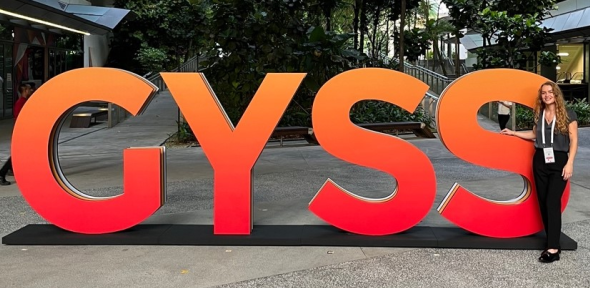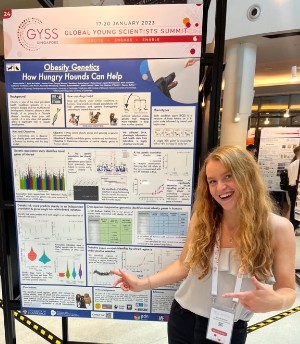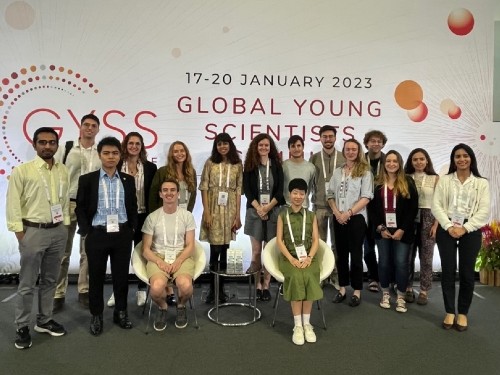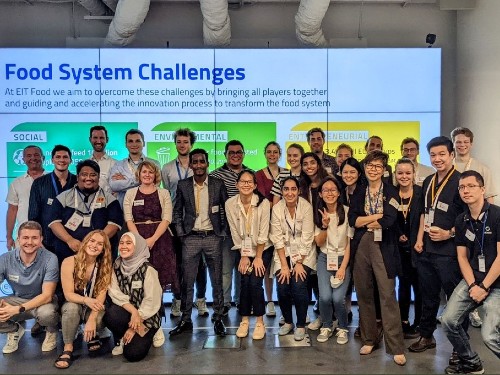
Submitted by Yolibeth López ... on Mon, 06/02/2023 - 16:18
In January 2023, Natalie attended the world renowned Global Young Scientists Summit (GYSS) in Singapore.
This is a multi-disciplinary event bringing together scientific minds from 32 countries to discuss science and technology trends, future game changers and how research could address major global challenges. Impressive speakers included multiple Nobel laureates as well as recipients of the Fields Medal, Millennium Technology Prize and Turing Award. This offered Natalie the opportunity to network with world-leading scientists as well as young scientists from across the world. Natalie was also selected to present her PhD research at the GYSS poster session, where she presented her work on obesity genetics.During GYSS, Natalie also attended a World Café style workshop at TUMCREATE. Attendees explored some of the most pressing questions surrounding the global food crisis including environmental, entrepreneurial, and social factors. Natalie and her fellow young scientists highlighted problems related to the global food crisis and considered how their personal skills and career paths might play a role in overcoming these obstacles.
GYSS is run by National Research Foundation (Singapore) and occurs annually, find out about applying for GYSS 2024 here.




